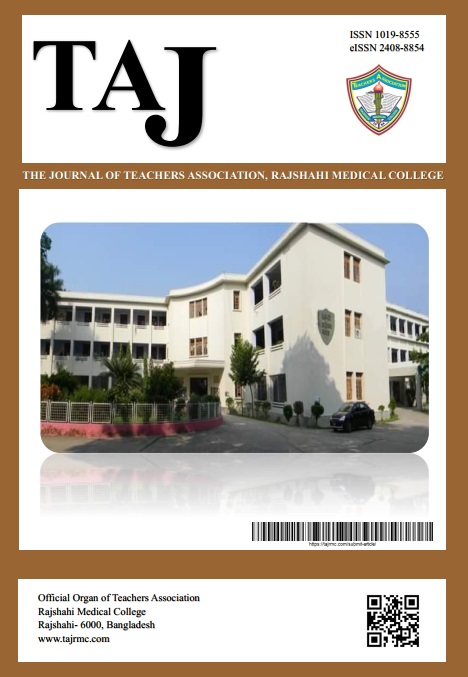| Community-Based Assessment of Depression Among Rural Bangladeshi Women: A Questionnaire-Based Study |
| Farhana Yasmin, Aparajita Roy, Muhammad Zubayer Alam, A. K. M. Shamsul Alam |
| https://doi.org/10.62469/taj.v037i02.017 |
| Pdf Download |
Background & Objective: Depression is a prevalent issue among rural Bangladeshi women, exacerbated by socio-economic challenges, cultural norms, and limited access to mental health care. Despite the high risk, research on this population's mental health is limited. This community-based study aims to assess the prevalence of depression in rural Bangladeshi women and identify associated socio-economic and demographic factors using a structured questionnaire. The findings will help inform targeted interventions to improve mental health outcomes in this vulnerable group. Methods: This study, conducted from October to November 2023 in Puthia Upazila, assessed depression in 318 rural women aged 18-49 using DASS-21. Excluding pregnant and post-menopausal women, it employed descriptive statistics, chi-square tests, and binary logistic regression to identify socio-economic predictors of depression, offering insights for future mental health policies. Results: The study of 318 rural women in Bangladesh found that 17.3% (n=55) experienced depression. Key factors included age, with the highest rate of 34.1% in the 46-49 age group (Chi-square = 22.55, p < .000), and illiteracy, where 47.8% were depressed (Chi-square = 82.9, p < .000). Lower income (29.6%, Chi-square = 33.47, p < .000) and having three or more children (33.3%, Chi-square = 22.7, p < .000) also correlated with higher depression rates. Logistic regression identified women aged 36-45 as more likely to be depressed (OR = 4.2, p < .05), while primary education and having no children were protective factors. Conclusion: This study reveals high depression rates among rural Bangladeshi women, influenced by age, education, income, and family size. It highlights the need for targeted mental health interventions addressing these factors to improve well-being.

